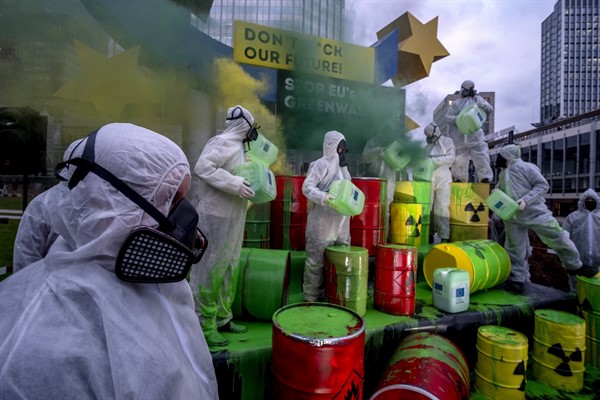A brewing dispute within the European Union over which energy sources will be classified as “sustainable” in terms of member states’ investment toward the European Green Deal is putting Germany’s domestic energy politics in the spotlight. The issue is already creating tensions within the newly formed Ampelkoalition, or “traffic light coalition,” between the Social Democrats, the Greens and Free Democrats, and those internal fights are influencing Chancellor Olaf Scholz’s positioning vis-à-vis Russia in the current crisis over Ukraine.
Berlin’s approach to transitioning to renewable energy sources has often set the tone across the continent. Now its Energiewende, or energy revolution, has the potential to reshape energy politics within the EU, particularly on sustainable financing. But as key decisions loom for the new coalition government on nuclear, coal and gas power, it is becoming apparent that their impact will have profound geopolitical consequences.
Since the 1980s, Germany has taken a strong leadership role in combatting the threat of climate change. As one of Europe’s largest markets for carbon-based energy, many of its constituents and political leaders have felt a responsibility to lay the early groundwork for a safer and more sustainable future. In fact, the Green Party was formed during this period in large part by environmentalist and anti-nuclear activists hoping to nudge the country in a new carbon-free direction.

